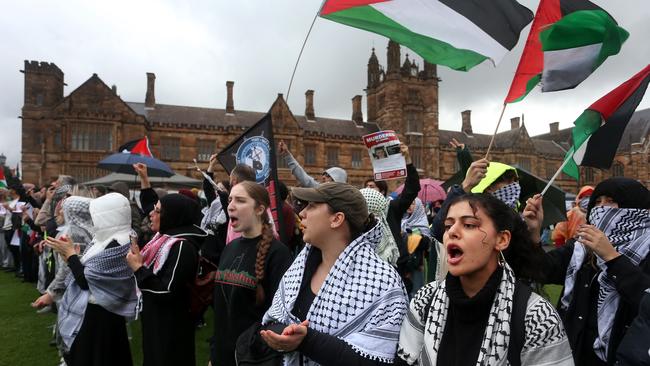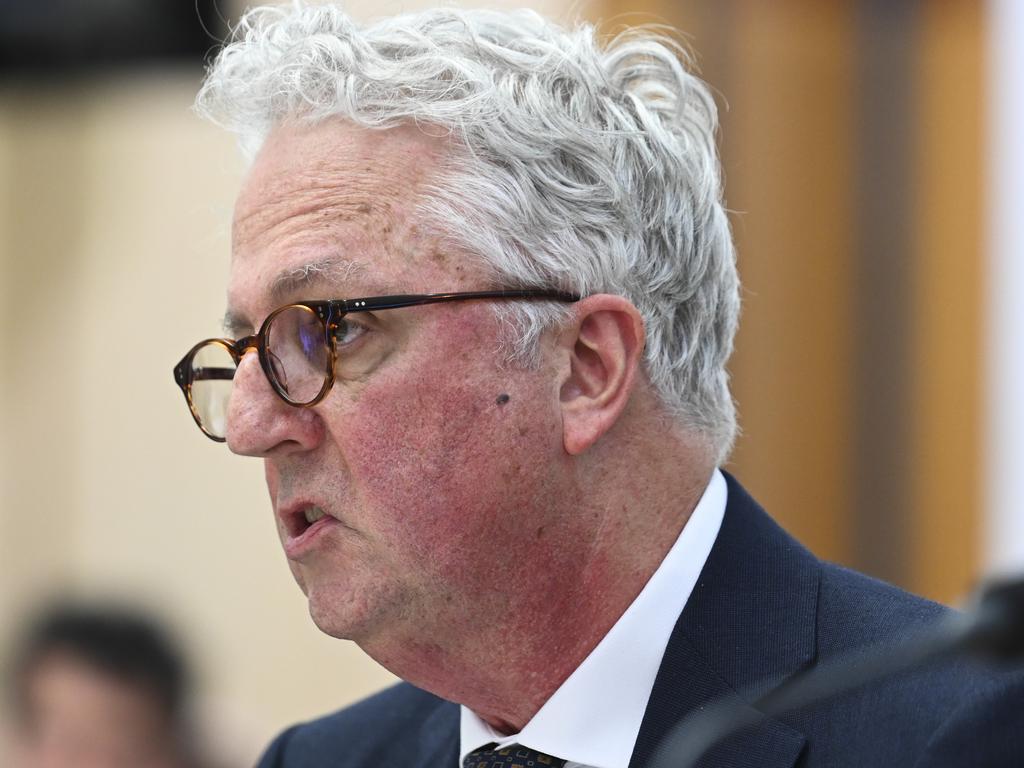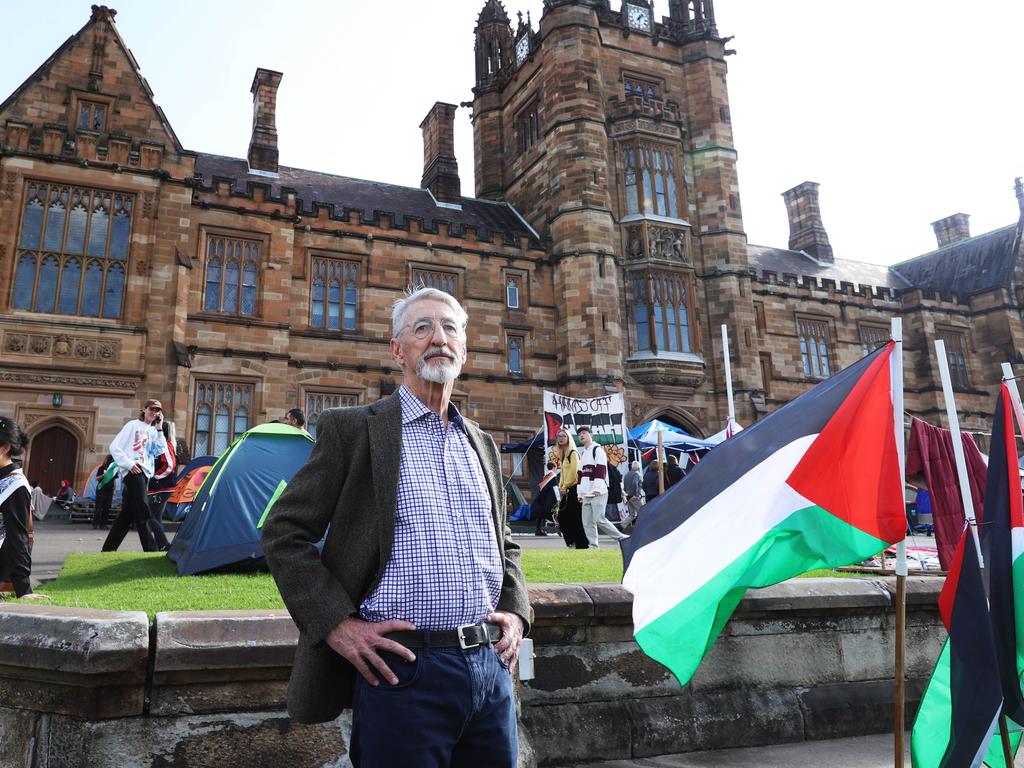University of Sydney review finds campus anti-Semitism requires ‘structural change’
Chancellor David Thodey said the university accepted the 15 recommendations ‘in principle’ and would now work to create a ‘blueprint for consultation and delivery’.

The University of Sydney should continue with its ban on encampment protests and should also prohibit students from addressing lecture halls before class, an independent review of university management in response to campus divisions following the October 7 terrorist attack on Israel has recommended.
Chancellor David Thodey said the university accepted the 15 recommendations “in principle” and would now work to create a “blueprint for consultation and delivery”.
Jewish community groups broadly welcomed the findings.
The University of Sydney commissioned the review by barrister Bruce Hodgkinson in the wake of community furore at its decision to strike a deal to end the pro-Palestine encampment protest in return for inviting protest representatives on to a working group to review the university’s investment policies.
Mr Hodgkinson said there was “no doubt there have been examples of anti-Semitism on the campus” and there was a need to “implement some structural change”.
However, he did not find specific instances of Islamophobia among submissions he received.
“The majority of complaints regarding Islamophobia were made by staff members of the university,” the review reads.
“The complaints were often based on the perception that the university had taken no action in relation to circumstances involving Islamophobia that were clearly contrary to the university’s policies.
“The complaints of Islamophobia included that staff members, and some students, have felt unsafe on campus as a consequence of being subject to Islamophobic words, phrases and behaviour.”
The review made 15 recommendations. Key among them was for the university to continue with its new ban on encampment protests and protests inside university buildings.
It also recommended a prohibition on student addresses prior to classes. There were numerous instances of protesters speaking before lectures, including one where those protesters repeatedly refused the lecturer’s demands to leave.
Mr Hodgkinson recommended a new “civility rule”, requiring staff and students who speak in class or in meetings should “ensure that the context in which they deliver their material and each aspect of it is clear to their audience”.
He recommended this in order to balance freedom of expression. In an apparent allusion to frequent pro-Palestine campus chants like “from the river to the sea” and calls for “intifada”, Mr Hodgkinson said it was often “claimed by the person using the word or phrase that they have done so in a legitimate context whilst those who have heard what was said are certain that an anti-Semitic word or phrase has been used”.
“Any person using a word or phrase that could possibly be interpreted in such a way that it is unlawful or otherwise impermissible should be made responsible for identifying to the audience at the time the word or phrase is used, the context in which it is used,” he wrote.
The report also recommended a more transparent complaints process.
The Australasian Union of Jewish Students said the report was a “positive step towards addressing the trust lost over the last 13 months”.
“We now expect the university to demonstrate leadership through full implementation of these recommendations as the next step in this process,” a spokesman said.
The Executive Council of Australian Jewry said the recommendations were “overall welcome” but said reform of the University of Sydney’s complaints process “needs to go further”.
“A conspicuous lack of understanding of contemporary anti-Semitism by university administrators has to date been a major deterrent to Jewish students and staff coming forward with complaints, as well as a fear of reprisals,” co-chief executive Peter Wertheim said.
“Those who administer the complaints process need to undergo regular training if they are to have a proper understanding of the complaints they receive, and there needs to be tougher action in response to complaints which are upheld.”
Zionist Federation of Australia chief executive Alon Cassuto said the report confirmed “anti-Semitism has been allowed to fester unchecked at the University of Sydney”.
“We welcome the findings that behaviours like the removal of posters of hostages, the removal of Israeli flags, and support for Hamas were all examples of anti-Semitic behaviour,” he said.
“We strongly encourage other universities, who have overlooked these exact incidents, to take note of these findings.”
Opposition education spokeswoman Sarah Henderson said the report “highlighted both institutional failures and the Albanese government’s weak response to campus anti-Semitism”.
She repeated a call for vice-chancellor Mark Scott to resign.
Professor Scott earlier this year conceded he had failed his Jewish students and staff and apologised.







To join the conversation, please log in. Don't have an account? Register
Join the conversation, you are commenting as Logout